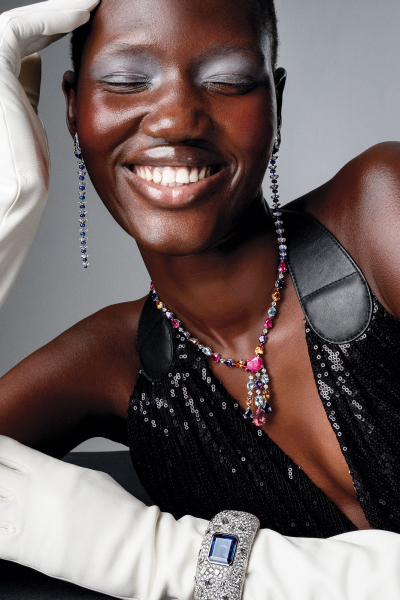
From the moment you wake up in the morning, you can take steps to cultivate optimism. Generating so-called “happy hormones”, such as serotonin, endorphins, oxytocin and dopamine, is key to a healthier life, thanks to their ability to improve sleep and reduce stress. This is explained in the book Guess My Age If You Can, by Dr Olivier Courtin-Clarins, an expert on healthy ageing. It explains, with the help of several specialists in longevity, the things we can do (that aren’t genetically determined) to help us age well and maintain a better quality of life as we get older.
Courtin-Clarins explains that positive emotions will create a “virtuous circle” that stimulates the body’s ability to repair itself, relax and generate those all-important, happy-making hormones. The tips in his book, along with those of others, such as Florence Servan-Schreiber, the French author of Three Buzzes a Day: How to Activate Your Optimism to Be Happier, emphasise simple self-care practices as effective ways of encouraging a dopamine boost – things like cooking, journalling, taking a bath, or just giving someone you love a hug. Servan-Schreiber’s “three buzzes” method suggests writing down three positive things from your day before bed. “It changes the way you see things from day-to-day, and stimulates the secretion of feel-good hormones.”
Cultivate optimism for a dopamine hit
In his book, Courtin-Clarins interviews Catherine Testa, founder of L’Optimisme.com, who says that “all studies agree that between 30 and 50 per cent of personality traits are biologically determined” – meaning the remainder can be acquired or worked on, and that our environment and the people around us have a part to play, too. “We can also take measures to be optimistic,” Courtin-Clarins agrees. “This is when work and habits can stimulate our feel-good hormones. When someone asks me if there is a recipe for happiness, I usually say that to be happy you have to be optimistic and draw on your own resources.”
If in doubt, laugh
There is one dopamine boost that never fails: laughter. Psychologist Lourdes Ramón, from Clínica Palasiet, explains: “The insula, which is one of the parts of the brain most involved in experiencing emotions, is activated when we see someone smile, or when we ourselves smile.” When you smile, the brain releases dopamine, endorphins and serotonin, all of which signal that you are happy, which in turn makes you feel happier. It’s a self-fulfilling prophecy.